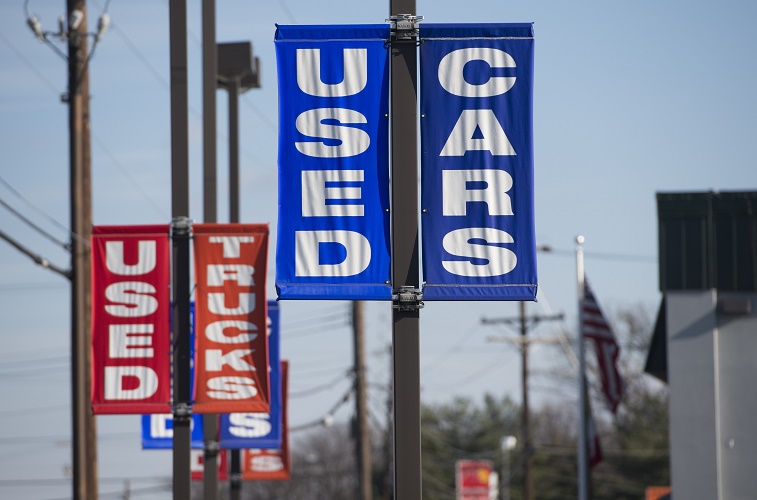
debt-free man | Thinkstock
It might appear impossible, but many consumers succeed in living
their entire lives without any debt. People of a variety of ages and
income levels have made this choice. It’s not an easy feat, but if it’s
something you truly want, don’t let naysayers talk you out of it. Some
dedicated savers have even seen results after committing to a
spending fast or spending diet, in which participants
set limits on how much money
they can spend on certain needs and wants. There are countless methods
out there for consumers looking to cut spending, pay back debt, or avoid
it all together. The important thing is to select a system that works
for you. You know what your weaknesses are, so choose accordingly.
The Urban Institute found
35% of American adults
have a report of debt in collections. This can include non-mortgage
debt that is more than 180 days past due, such as a credit card balance,
medical bill, or utility bill. There are a number of ways to find
legitimate debt assistance or helpful strategies for
coping with debt.
This article’s primary focus is the practical lifestyle choices that
will help consumers avoid accruing debt in the first place. While this
commitment requires tremendous discipline, you may find that it is well
worth it to revel in the knowledge that not a dime of your hard earned
money is being wasted on paying interest. Whether you’ve held debt in
the past or not, it is within your power to keep it out of your life
going forward. Here are six ways to completely avoid incurring debt.
1. Build a large savings
Working toward a sizable savings account is difficult, but it’s also
the most important way to stay out of debt. Think of your savings as
preparation for unexpected expenses. This way, when medical bills or car
repairs pop up, you won’t bat an eye. Saving is also essential for
long-term expenses you might not even be planning for yet, such as a
child’s education or a new home. Your savings will come in handy for
more enjoyable purchases as well, such as an impromptu trip. But without
a hefty balance in your savings account, life’s unexpected costs will
sneak up on you, posing a threat to your debt-free lifestyle. Keep in
mind that by living a life without loans, you will be cutting out a lot
of monthly payments that other consumers take on, creating more room in
your budget to maintain a healthy savings.
2. Pay off credit card transactions immediately

Pay off credit cards | iStock.com
It’s not necessary to deal exclusively in cash in order to avoid
debt. For some, it helps to use physical currency to avoid making
impulse buys or running up a huge credit card balance. A credit card
makes certain things easier, such as traveling, renting a car, or making
hotel reservations, but charging purchases
isn’t the only way to build credit.
If you know yourself, and a credit card isn’t something you can handle,
don’t get one. Otherwise, don’t be afraid to use credit cards to your
advantage for rewards points and/or cash back. If you decide to have a
credit card or even more than one, make it a strict rule to pay off each
purchase you make on the same day. Never wait for the monthly bill.
This will force you to actually think about how much money you have in
your budget before you swipe.
3. Buy a cheap used car

Car lot | Saul Loeb/AFP/Getty Images
Most middle class Americans can’t afford to buy new cars outright, so
many opt to take on a car payment. No one needs a car loan. There are
plenty of reliable used cars out there. There is risk involved in
purchasing a used car, but there is also risk in dealing with crafty
salesmen at dealerships, who often upsell you on expensive and
restrictive warranties. Do your research on reliable car models, find a
good mechanic, and use your best judgment when buying your vehicle. You
might just get a great deal on a car that will last for years with
relatively little maintenance. Public transportation can be an
affordable choice as well, depending on your location, but in rural
areas a car could very well be a necessity.
4. Go to community college

save money at community college | iStock.com
As far as higher education is concerned, students willing to take out
loans certainly have more options, and many wisely choose to go this
route. However, that doesn’t mean you have to borrow money to get a
great education. Many students save thousands by starting at a community
college before transferring to a more prestigious university.
Scholarships and grants also go a long way. No one can be blamed for
choosing to take out student loans, especially for medical school or
other specialized programs. But with student loan debt in the U.S. now
exceeding credit card debt, many wise students are choosing to slowly
work their way through college instead.
5. Rent

For rent sign | PAUL J. RICHARDS/AFP/Getty Images
Renting for life sounds like a nightmare to some people, but real
estate is not cheap. If you are committed to staying debt-free, housing
will likely be your biggest challenge. That said, saving up for a modest
home is totally plausible for most middle class Americans (provided you
aren’t living somewhere like Southern California). Yes, it could take a
long time, depending on your income level, but spending a number of
years renting and saving could ultimately be a rewarding experience.
Long-term renters know that this lifestyle has its challenges and
frustrations, but there are fair landlords out there, and
renter’s insurance is affordable.
If you are single and living alone is out of your budget, perhaps due
to living in a metropolitan area, consider renting a room or subletting
until you can find an unusually good deal.
6. Buy only what you need

Buying too much stuff | KENZO TRIBOUILLARD/AFP/Getty Images
Impulse shoppers won’t like this one, but it’s amazing the amount of
money that can be saved by practicing one straightforward strategy:
Think before you buy. In some cases, think very far in advance of
buying. Research the best deals and practice listening to the little
voice in your head that asks, “Do I actually need this?” You don’t have
to live off the grid or be a hermit to practice minimal consumerism.
Life costs money, but you can learn to have fun without spending a
fortune. Like anything, it takes practice. If you know you are going to
require strict guidelines to stay in the money-saving mindset, make an
actual budget on paper and set reasonable rules for yourself.
Culled from Money & Career Cheat Sheet






No comments:
Post a Comment